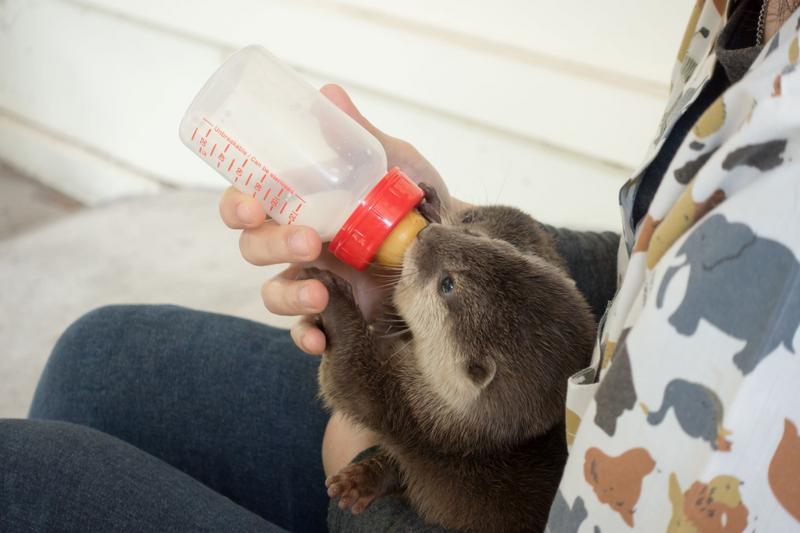Our environment has been an important topic in the recent decade. One element of our
environmental sustainability involves all animal creatures. When one species endures disease, hardship, or even faces extinction, it can have countless negative repercussions, from humans and other animal species to the various ecosystems in which we all exist.
It is important to have skilled scientists, like zoologists or wildlife biologists, that understand each type of animal and knows how to keep them healthy and thriving within their ecosystems.
What does a Zoologist do?
A zoologist specializes in and studies a specific animal species. They are knowledgeable about a particular animal and understand the ecosystems in which that animal lives. There are many types of zoology specialties; zoologists are experts in a specific animal or type of wildlife. In a way, a zoologist is a caretaker of a type of animal, whether that’s indirectly or directly tending to a specific animal species.
A zoologist's duties may include:
• Monitoring an animal’s diet.
• Providing general care. Such as feeding animals, giving health checkups and maintaining a clean or healthy area for animals to live.
• Tracking reproduction rates and managing breeding programs.
• Following migration patterns and anomalies.
• Collecting animal specimens and conducting laboratory work to evaluate findings.
• Gathering data to report important observations.
• Addressing and offering solutions to any wildlife and/or animal species threats or concerns.
• Consulting with environmentalist and government agencies as well as bio engineers.
• Scheduling research and study trips.
• Educating the general public, students, clients, and/or briefing local municipalities, state, and federal departments.
Where do Zoologists Work?
Zoologists work in many different settings, such as labs, offices, and in all types of outdoor environments. Some zoologists are educators at national parks and colleges and universities as well as museum curators. There are even opportunities to work as a zoologist at medical research or animal pharmacy companies, testing veterinary medicines and studying pest-control drugs for animal breeds.
Others work more directly with wildlife as conservation agents at the state or federal level, zookeepers at zoos, animal reserves and rehabilitation centers, or as aquarists at public aquariums or ocean research sites. This direct work with animals involves animal care, like training, feeding, research and enclosure upkeep.
Zoologists or conservationists on the field must enjoy working outdoors, day or night, and in sometimes demanding environments like deserts, the tundra, jungles, ponds, lakes, and oceans. Expect to travel and trek unique terrains to better understand the wildlife you are studying.
What are the Different Types of Zoology?
According to a
Unity College blog, there are more than 8 million species on Earth! With that much diversity, it is important that our animal world is healthy and ecosystems stay balanced. This means there are many types of zoology and wildlife career options.
Below is a list of a few popular types of zoology:
Specialist Zoologist
There are many types of zoologists. These are determined by the type of species a zoologist specializes in.
Arachnologist
Studies arachnids, such as spiders, scorpions, pseudoscorpions and opiliones (commonly known as daddy longlegs or harvestmen).
Cetologist
Studies marine mammals, such as dolphins, whales, and porpoises.
Entomologist
Studies insects, such as ants, cicadas, beetles, butterflies, honeybees, wasps and more.
Ethologist
A subfield of zoology, this type of scientist studies animal behaviors in their natural habitats. Jane Goodall is a famous ethologist and primatologist.
Studies amphibians and reptiles, such as crocodiles, frogs, iguanas, salamanders and snakes.
Ichthyologist
Studies all varieties of fish, such as bony, cartilaginous and jawless fish.
Malacologist
Studies mollusks, such as clams, mussels, octopuses, slugs and snails.
Mammalogist
Studies all mammals. Mammals are a class of animal species that have fur, four-chambered hearts and complex nervous systems. Examples of mammals include dogs, elephants, goats, bats, marsupials, cats, platypus, tigers, giraffes, hippos, sloths, tigers, manatees, and meerkats (just to name a few).
Studies all types of birds.
Paleozoologist or Paleontologist
Studies fossilized, prehistoric animal remains.
Parasitologist
Studies parasites, such as fleas, lice, tapeworms, leeches and protozoa.
Primatologist
Studies primates, such as baboons, chimpanzees, gorillas, lemurs and orangutans.
Teuthologist
Studies cephalopods, such as ammonites, cuttlefish, giant squid and octopus.
Wildlife Biologist
Wildlife biologists study wild or undomesticated animals in their natural habitats.
Ecologist
This type of scientist studies environment and organism relationships. For example, an ecologist could research how wetland creatures interact with life within this type of environment.
Conservationist
Conservationists work to preserve and protect wildlife and their habitats.
Marine Biologist
Marine biologists study all marine life and marine plants that live in the ocean.
Animal Behaviorist
These specialists study animal behaviors and work to understand and find solutions for positive behavior changes. The
American Kennel Club shares that animal behaviorists often pick a specialty such as farm and zoo animals, and even home pets (domesticated dogs, cats, birds.
How long does it take to become a Zoologist?
It takes about four years to become a Zoologist. However, zoology involves many specialized fields, so it may take an additional one to two years to earn your zoology specialty.
What are the educational requirements for a Zoologist?
Zoologists need a college degree to earn the official title, Zoologist. There are three common educational requirements that need to be met to begin working as a zoologist.
Obtain Your Bachelor’s degree
Wildlife biologists and zoologists need their Bachelor of Science degree to begin entry-level work. Many students choose degrees like biology or conservation science to get started.
Just as there’s a wide variety of zoology careers to choose from, there are
many scholarships available to help you pay for your zoology degree.
Pursue an internship or Volunteer
Zoology is a hands-on field. It is important to apply your studies outside of the classroom. Make it a goal to have had at least two
biology internships before you graduate with your zoology degree.
Consider volunteering at a local animal shelter or shadowing a zookeeper or veterinarian during the summer months. These experiences will help you
decide what setting you would like to work in as a zoologist and make you a more desirable job candidate after you have graduated from college.
Earn your Graduate Degree in Zoology
To
move up the career ladder , you may need to have an advanced degree. As you are working toward your zoology degree, research to find out if the area you would like to specialize in requires a master's degree in zoology.
Zoology salaries and career outlook
According to the U.S. Bureau of Labor Statistics (BLS), the average salary for zoologists in 2021 was $64,650. Students graduating with a general biology degree can expect an average, entry-level salary of $55,533 according to
Monster’s Salary by Major Tool.
The U.S. BLS predicts employment for wildlife biologists and zoologists will grow by 5% through 2023. Most of these future jobs will be due to workers retiring from their biology, zoology and wildlife biology careers.
Is Zoology Right for You?
If you enjoy science, animals and the great outdoors, zoology is a great field to explore. Expect to be on your feet and to work hard, as this type of work requires heavy lifting and good overall health and fitness. Caring individuals, zoologists report high job satisfaction taking care of the animals they love.

